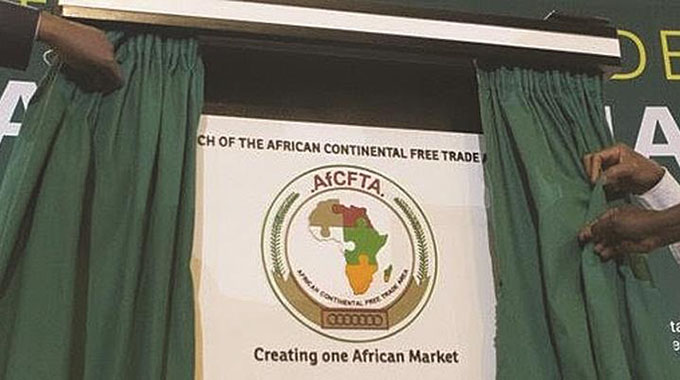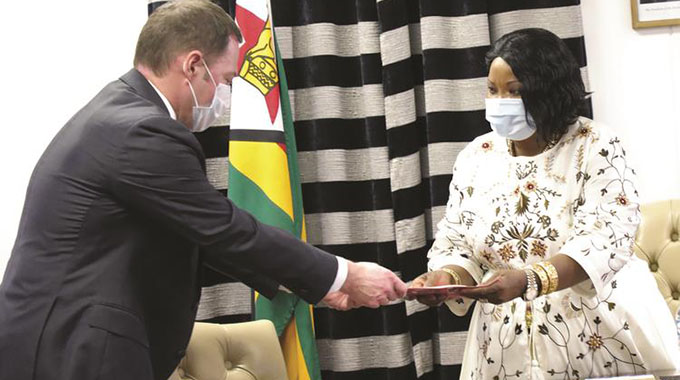AfCFTA should enhance bio-diversity trading: UN

Business Reporter
THE United Nations has called upon Africa to mainstream trade and bio-diversity to unlock wider economic potential under the African Continental Free Trade Area (AfCFTA).
The continent is regarded as one of the most bio-diverse regions on earth and yet commitments negotiated so far under the landmark AfCFTA agreement barely mention the environment.
This represents a missed opportunity to achieve sustainable development through trade integration in Africa, as stipulated under the Africa 2063 Agenda, says a new United Nations Conference of Trade and Development (UNCTAD) study entitled “Implications of the African Continental Free Trade Area for Trade and Biodiversity: Policy and Regulatory Recommendations.”
According to UNCTAD, trade in bio-diversity-based products constitutes an important part of African countries’ exports.
In 2017, nearly US$78 billion worth of goods with a biological origin were exported by members of the African Union, 3,5 percent of their combined GDP. Natural capital accounts for between 30 percent and 50 percent of the total wealth of most African countries.
In addition, Africa is home to eight of the world’s 36 bio-diversity hotspots — bio-geographic regions with significant levels of biodiversity — and nearly one fifth of all mammal, bird and plant species are estimated to live in the continent, says the specialised trade agency.
The study was developed in partnership with the ABS Initiative and examines the link between trade and bio-diversity and the existing parties’ commitments under the AfCFTA.
It recommends ways of transforming the agreement into an enabler of sustainable trade in bio-diversity and a key driver of post-Covid-19 recovery and development in Africa.
“BioTrade could play a pivotal role in establishing a green development pathway for African countries and thus ensure an environmentally friendly recovery from the Covid-19 pandemic,” said David Vivas, an UNCTAD legal officer working on trade and environmental issues, including the BioTrade Initiative.
BioTrade refers to the activities related to the collection, production, transformation and trade of goods and services derived from biodiversity under a set of environmental, social and economic sustainability criteria, known as the BioTrade Principles and Criteria.
The study, thus, identifies potential entry points for environmental considerations into the AfCFTA legal text currently being negotiated. It highlights positive economic incentives for the sustainable trade in bio-diversity products to contribute to environmental objectives such as ecosystem conservation and the fight against climate change.
The comparative advantage many African countries have in biological resources and derived products is an enormous economic opportunity, added Mr Vivas.
“As countries move forward in the AfCFTA negotiation process, next phases must focus on these opportunities, including nature and biodiversity-based solutions like BioTrade.”
The drive towards this focus would require enhanced cooperation in the conservation and sustainable use of wildlife trade, climate change mitigation and adaptation, he said.
The study further advocates for an additional protocol linking trade to environmental considerations —a standalone chapter — to be included in the AfCFTA agreement.
“An instrument of this kind could play an important role in addressing and enabling trade in biological and genetic resources, among other things,” said Frederic Perron-Welch, UNCTAD consultant and author of the study.
“The strong link that exists between trade and the environment, as exemplified by BioTrade, should also be incorporated into both existing instruments as well as those still being negotiated.”
The AfCFTA covers the largest regional trade area in the world and includes the largest number of participating countries since the creation of the World Trade Organisation. It was founded in 2018 by the members of the African Union and covers a market of 1,2 billion people and a GDP of $2,5 trillion.
Negotiations for the second and third phases are currently under way and are expected to be concluded by the end of 2021.
These include protocols on additional topics such as intellectual property rights, investment, competition policies and e-commerce.
Despite the ongoing negotiations, trade among AfCFTA members commenced on 1 January 2021.
The UN Economic Commission for Africa estimates that the AfCFTA has the potential to boost intra-African trade by 52,3 percent by eliminating import duties, and it could double this trade if non-tariff barriers are reduced.










Comments